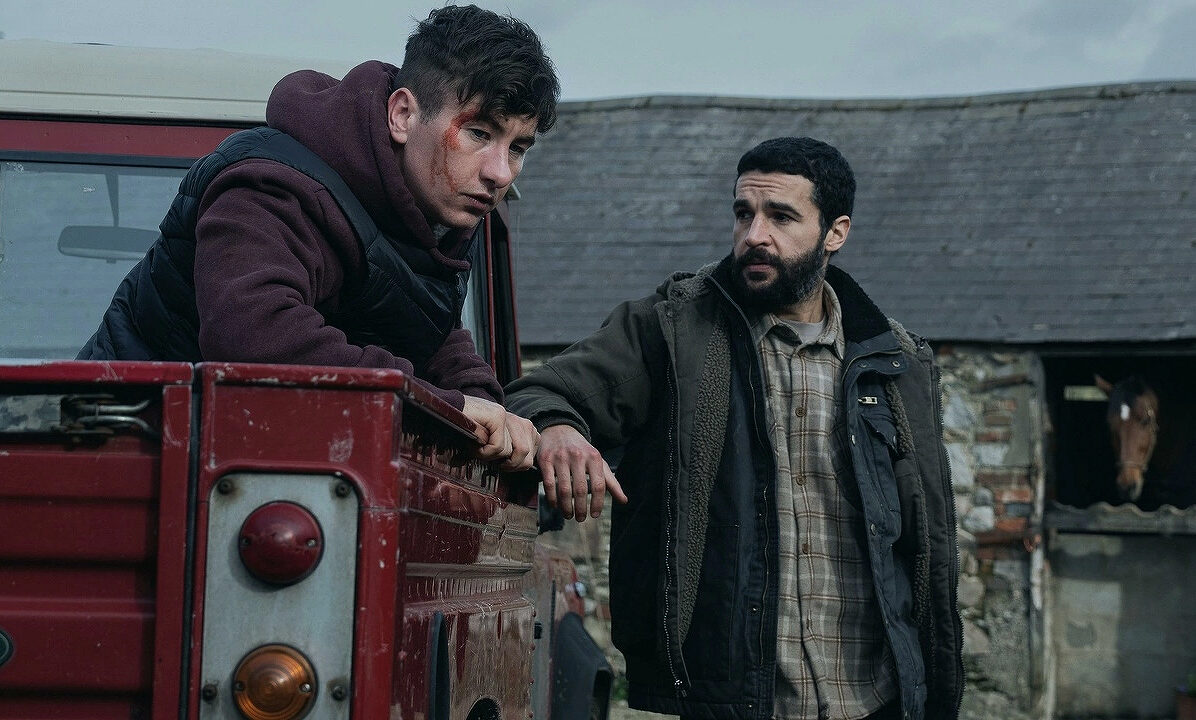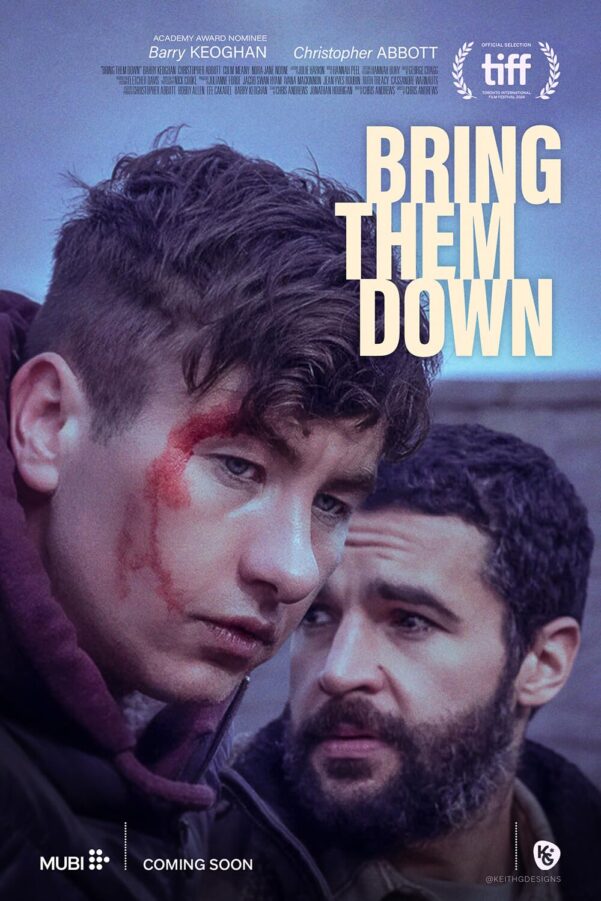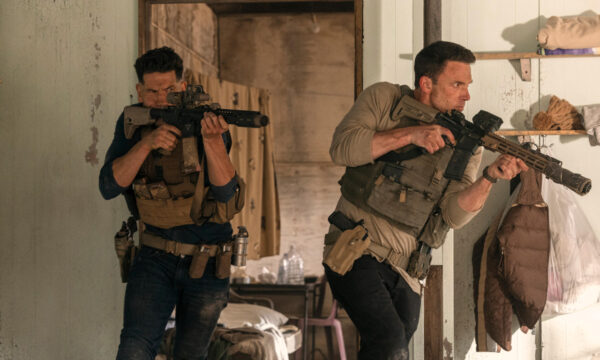“It was almost like I wanted to make two films because I found both stories compelling, but in completely different ways”: Christopher Andrews and Hannah Peel on Bring Them Down at Belfast Film Festival

Christopher Andrews’s explosive debut Bring Them Down is an immersive exploration of generational anger. He uses the backdrop of rural Ireland to underline the extremes of the competitive nature of toxic masculinity. A deliciously feral visual piece with lots of violent imagery of dead animals, mutilated human bodies and shots of blood, Bring Them Down boasts the magnificent talents of Christopher Abbott and Barry Keoghan. More than just a revenge thriller, the picture tells a very human tale of rival farming families whose conflict escalates, showcasing how patriarchs’ animosity can bleed into their children.
During a Q&A session at the Belfast Film Festival with the director and composer Hannah Peel, Andrews explained his initial writing process. He focused mainly on the narrative choice of oscillating between Michael’s and Jack’s perspectives: “I wrote it as a straight narrative at first, and it was everything that I didn’t want it to be, which was this story about good people having bad things done to them, and bad people doing bad things to these good people. That’s not what we were trying to explore.” Andrews said. “It was almost like I wanted to make two films because I found both stories compelling, but in completely different ways.”
Michael and Jack are the backbone of the piece. Their relationship with their respective fathers and the volatile tension that continuously builds between the two are what make the film such an intriguing watch. It’s no surprise that Andrews’s approach to writing begins with him thinking about characters. According to him, these individuals inform the story through their wants and needs, and the decisions they make are what set things in “perpetual motion”. To him, it’s the characters that keep the journey interesting. Part of that characterisation is also through their visual presentation, and Andrews highlighted in the Q&A its importance through the contrast between Michael and Jack.
“Michael is this quiet, spiritual shepherd. He’s very organic and he feels very much of that space. The moments where he’s most comfortable in the film are when he’s at the top [of the mountain] with his animals. Jack is a kind of counter to that. He’s young and he’s still trying to work out where his space is in this world, so he has more vibrancy and everything is a little bit more electronic and synthetic. He’s a kind of counter to the landscape and one of the things he learns is actually, he’s got a closer connection to the landscape than he realises. He’s born from that landscape, and it’s really hard to shake off where you’re from.”
Landscape was also a prominent point of discussion. Andrews affirmed that he didn’t like general views, although they were necessary to pull bits and pieces of the feature together. But what he wanted for his picture was to embed the characters into the landscape and emphasise them as part of the land. “What I’m always trying to go for is this kind of transcendental idea of cinema where you’re looking for moments of grace with characters. Spiritual moments that happen around the frame or between the cuts. The shepherd is somebody that’s connected to the animals, and the animals represent lost or found souls. There was a real conscious effort to make it feel as if those men are from that landscape.”
However, it cannot be overstated how big of a role Peel’s work on the score adds to the experience. She also focused a lot on the landscape and the visual presentation of the two characters to create music for the picture. “Michael is very much of the earth: he’s wearing natural fibres and wool. Barry’s character is more synthetic and bright in colour. The music choices were definitely defined by that. The skin drums were very prominent for Michael and then by the second half of the film, it was more of the electronic synth stuff that was coming in [for Jack]. It’s quite funny because there’s no melody at all in the whole thing, which is unusual for a score. You would normally think there’d be something. It was a conscious decision. It kind of hones in on that claustrophobic feeling,” Peel said, and followed it up with high praises for the director. “Even though they’re in this mountain, the way you’ve written it and directed it – it’s so tight and it just needed that intensity to keep hammering it home. It does feel like a bit of a requiem.”
There was genuine appreciation between the director and composer as they talked about their creative collaboration. They had a very similar vision for the feature that not only hinged on the two characters but in their use of nature in the writing and directing, as well as in the musical composition. According to Andrews, “It was a really beautiful and exciting creative relationship.” It’s a testament to the synergy in their approach that the film is such a success.
Mae Trumata
Bring Them Down does not have a release date yet.



























Facebook
Twitter
Instagram
YouTube
RSS